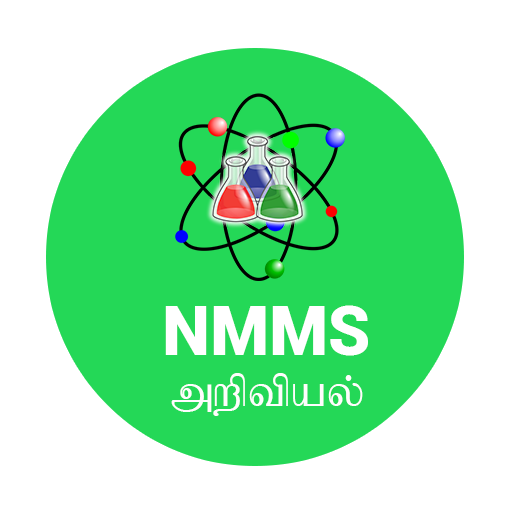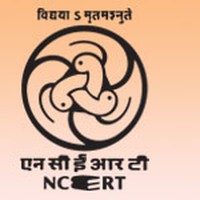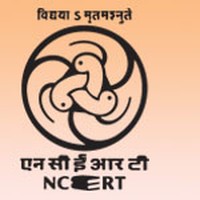

NTSE SAT Mathematics - Number System
Exam Duration: 45 Mins Total Questions : 30
The value of \((0.34\overline { 67 } +0.13\overline { 33 } )\) is equal to
- (a)
\(0.4\overline { 8 } \)
- (b)
\(0.\overline { 48 } \)
- (c)
\(0.48\overline { 01 } \)
- (d)
0.48
About the number of pairs which have 16 as their HCF and 136 as their LCM,we can defiantly say that
- (a)
No such pair exists
- (b)
only one such pair exists
- (c)
only two such pair exists
- (d)
many such pair exists.
Find the least number which when divided by 16,18,20 and 25 leaves 4 as remainder in each case, but. when divided by 7 leaves no remainder
- (a)
17004
- (b)
18000
- (c)
18002
- (d)
18004
The HCF and LCM of two numbers are 84 and 21 respectivelyI.f the ratio of the two number is 1:4, then the larger of two number is
- (a)
12
- (b)
48
- (c)
84
- (d)
108
If the unit digit is the product (459 \(\times\) 46 \(\times\) 28* \(\times\) 484) is 2, the digit in place of * is
- (a)
3
- (b)
5
- (c)
7
- (d)
none of these
In a division sum, the divisor is 10 times the quotient and 5 times the remainder. If remainder is 46, then dividend is
- (a)
4236
- (b)
4306
- (c)
4336
- (d)
5336
The least number which is a perfect square and is divisible by each of the number 16,20 and 24 is
- (a)
1600
- (b)
3600
- (c)
6400
- (d)
14400
The number of zeroes at the end of 3525\(\times\) 2012 is
- (a)
34
- (b)
24
- (c)
15
- (d)
none of these
Which one of the following has rational square root?
- (a)
0.4
- (b)
0.09
- (c)
0.9
- (d)
0.025
\(\frac { \sqrt { 7 } +\sqrt { 5 } }{ \sqrt { 7 } -\sqrt { 5 } } \) is equal to
- (a)
1
- (b)
2
- (c)
6-\(\sqrt{35}\)
- (d)
6+\(\sqrt{35}\)
IfX=(7-4\(\sqrt3\)) then value of \(\left( x+\frac { 1 }{ x } \right) \) is
- (a)
3\(\sqrt3\)
- (b)
8\(\sqrt3\)
- (c)
14
- (d)
14+8\(\sqrt3\)
\(\sqrt [ 3 ]{ 4\frac { 12 }{ 125 } } =?\)
- (a)
1\(\frac{2}{5}\)
- (b)
1\(\frac{3}{5}\)
- (c)
1\(\frac{4}{5}\)
- (d)
2\(\frac{2}{5}\)
How many two - digit number satisfy this property. The last digit or units digit of the square of the two-digit number is 8 ?
- (a)
1
- (b)
3
- (c)
4
- (d)
none of these
Whatis the HCF of any two prime numbers?
- (a)
1
- (b)
2
- (c)
3
- (d)
4
The total number of prime factors in the expression
( 4)11 \(\times\) ( 7)5\(\times\) (11)2 is
- (a)
30
- (b)
29
- (c)
28
- (d)
31
The total number of factors of 91 is
- (a)
3
- (b)
4
- (c)
5
- (d)
6
What least value must be assigned to * so that the number 197 * 5462 is divisible by 9?
- (a)
3
- (b)
2
- (c)
4
- (d)
5
The units digit of 771 is
- (a)
2
- (b)
4
- (c)
3
- (d)
5
The last digit of the number (196)424
- (a)
6
- (b)
7
- (c)
8
- (d)
9
Which of the following g is the statement of fundamental theorem of arithmetic?
- (a)
Given positive integers a and b. there exists unique integers q and r satisfying a=bq+r, 0≤r<b
- (b)
Every composite number can b-e expressed (factorised) as a product of primes, and this factorisation is unique, apart from the order in which the prime factors occur,
- (c)
For any two positive integers a and b
HCF (a,b)\(\times\)LCM(a,b)=a\(\times\)b - (d)
None of these
If \(\frac { 1 }{ 3.718 } \) = 0.2689, then find the value of \(\frac { 1 }{ 0.0003718 } \)
- (a)
2.689
- (b)
26.89
- (c)
2689
- (d)
none of these
What will come in the place of question mark?
0.006 + ? = 0.6
- (a)
1
- (b)
0.001
- (c)
0.01
- (d)
none of these
What is the difference between the biggest and the smallest fraction among \(\frac { 2 }{ 3 } ,\frac { 3 }{ 4 } ,\frac { 4 }{ 5 } and\quad \frac { 5 }{ 6 } \)
- (a)
\(\frac{1}{12}\)
- (b)
\(\frac{1}{6}\)
- (c)
\(\frac{1}{30}\)
- (d)
\(\frac{1}{20}\)
The value of \(2.\overline { 136 } \) is
- (a)
\(\frac{47}{200}\)
- (b)
\(\frac{68}{495}\)
- (c)
\(2\frac{3}{22}\)
- (d)
none of these
\(\left( 0.\overline { 09 } \times 7.\overline { 3 } \right) \) is equal to
- (a)
\(.\overline { 6 } \)
- (b)
\(0.\overline { 657 } \)
- (c)
\(0.\overline { 67 } \)
- (d)
none of these
The sum of \(\overline { 2 } .75\quad and\quad \overline { 3 } .78\quad is\)
- (a)
\(\overline { 1 } .03\)
- (b)
\(\overline { 1 } .53\)
- (c)
\(\overline { 4 } .53\)
- (d)
\(\overline { 5 } .53\)
Which of the following is greatest?
- (a)
\(\sqrt { 2 } +\sqrt { 3 } \)
- (b)
\(\sqrt { 3 } +\sqrt { 4 }\)
- (c)
\(\sqrt { 10 } +\sqrt { 20 } \)
- (d)
\(\sqrt { 3 } +\sqrt { 1 } \)
2017 + 3017 is divisible by
- (a)
30
- (b)
20
- (c)
50
- (d)
none of these
an-bn is always divisible by (a-b), if a.b and n are natural numbers and divisible by (a+b) if n is
- (a)
odd
- (b)
even
- (c)
both odd or even
- (d)
none of these
Find the value of \(\sqrt { 56+\sqrt { 56+\sqrt { 56+....x } } } \) is
- (a)
7
- (b)
6
- (c)
8
- (d)
9







